

Sign in
New customer? Start here
What is the Difference between Uncoated and Coated Bearings?
Choosing the right bearing is crucial for machine performance and durability. This blog delves into the differences between uncoated and coated bearings. We'll cover their unique properties, applications, and benefits to help you make informed decisions for your needs.
Understanding Bearings
Bearings are important parts in machines that help things move smoothly. They reduce friction, which makes them easier for parts to slide or roll. Bearings also support weight, helping to carry the load of moving parts and keeping them in the right position. This helps machines work better and last longer.
Some Types of Bearings
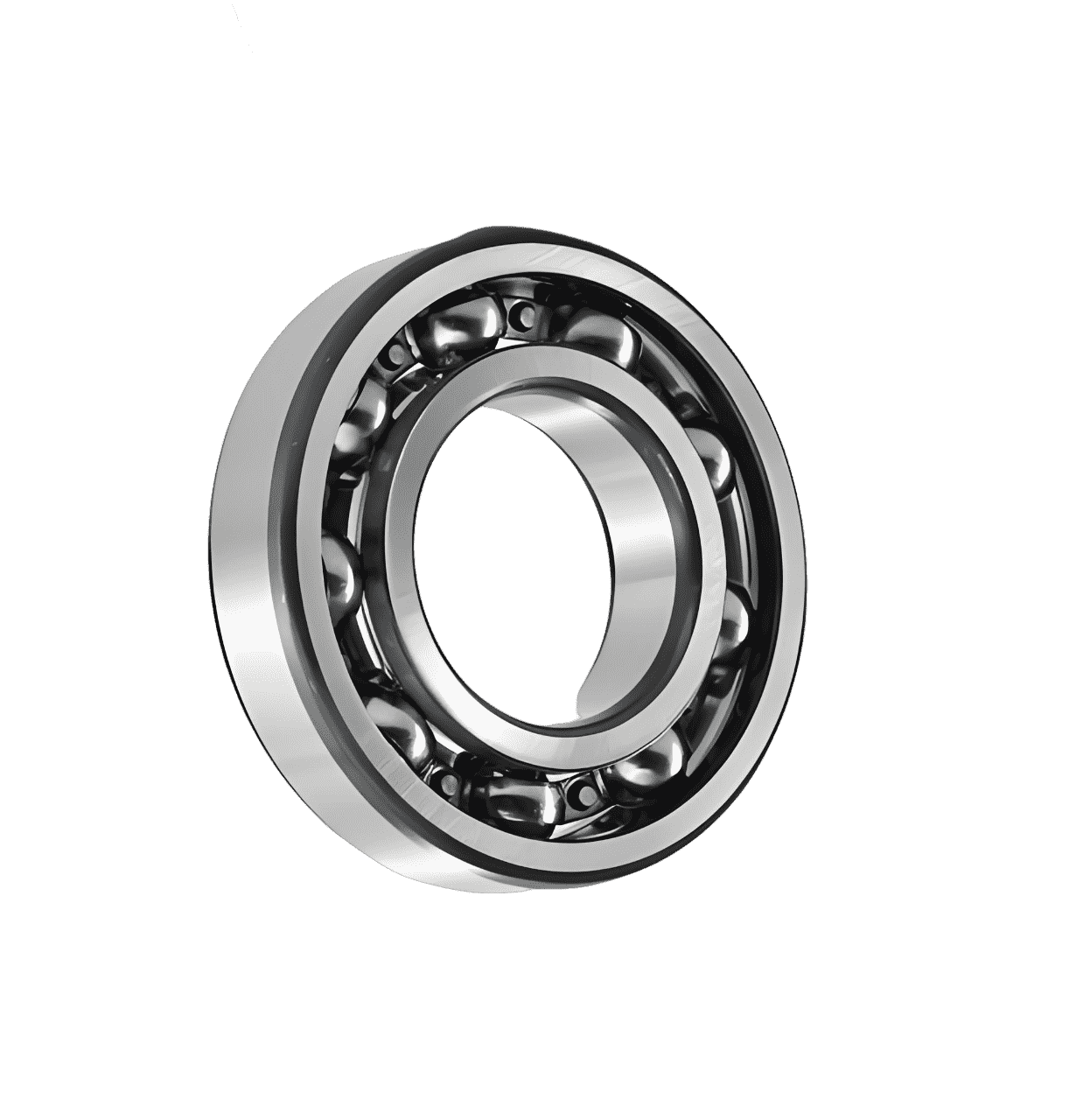
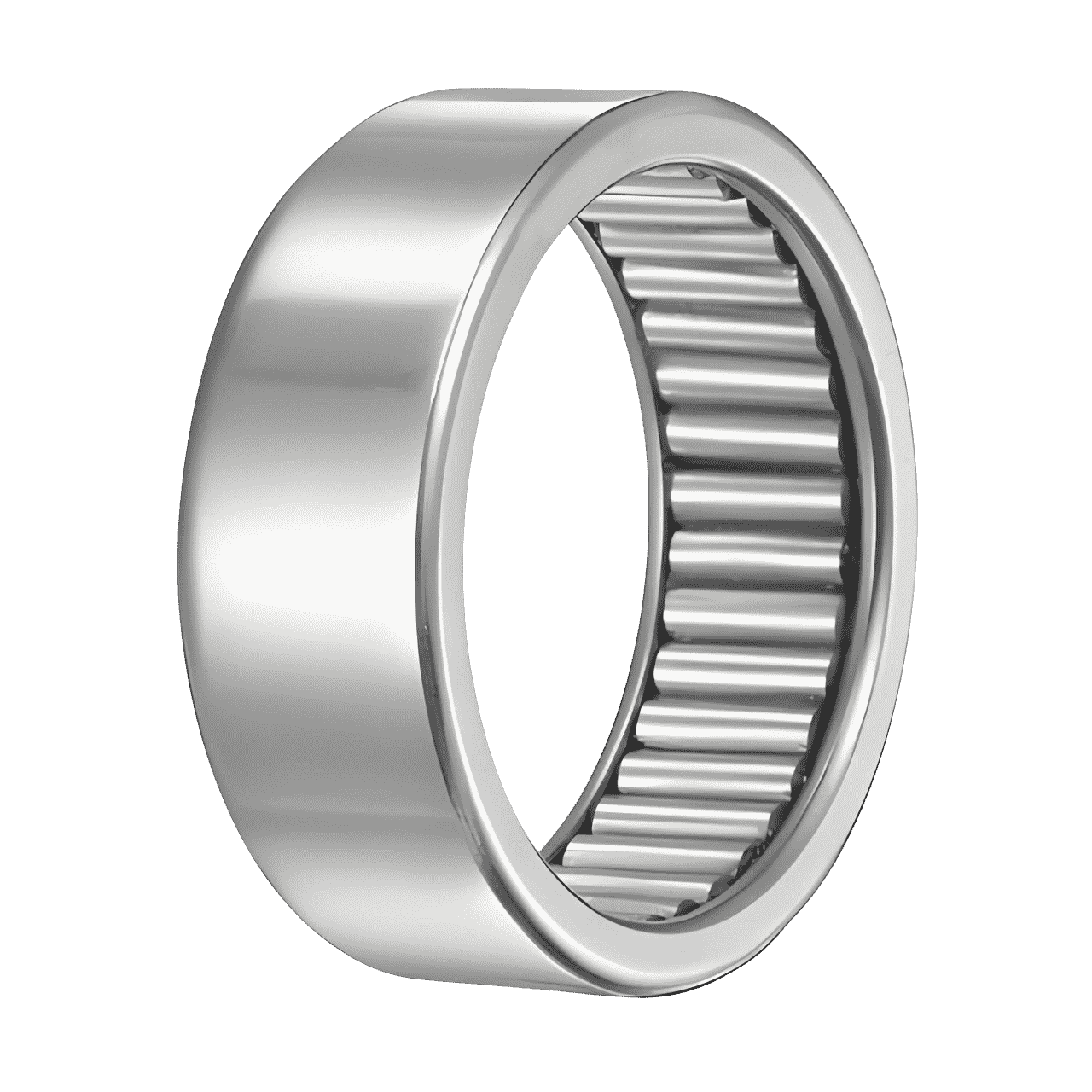
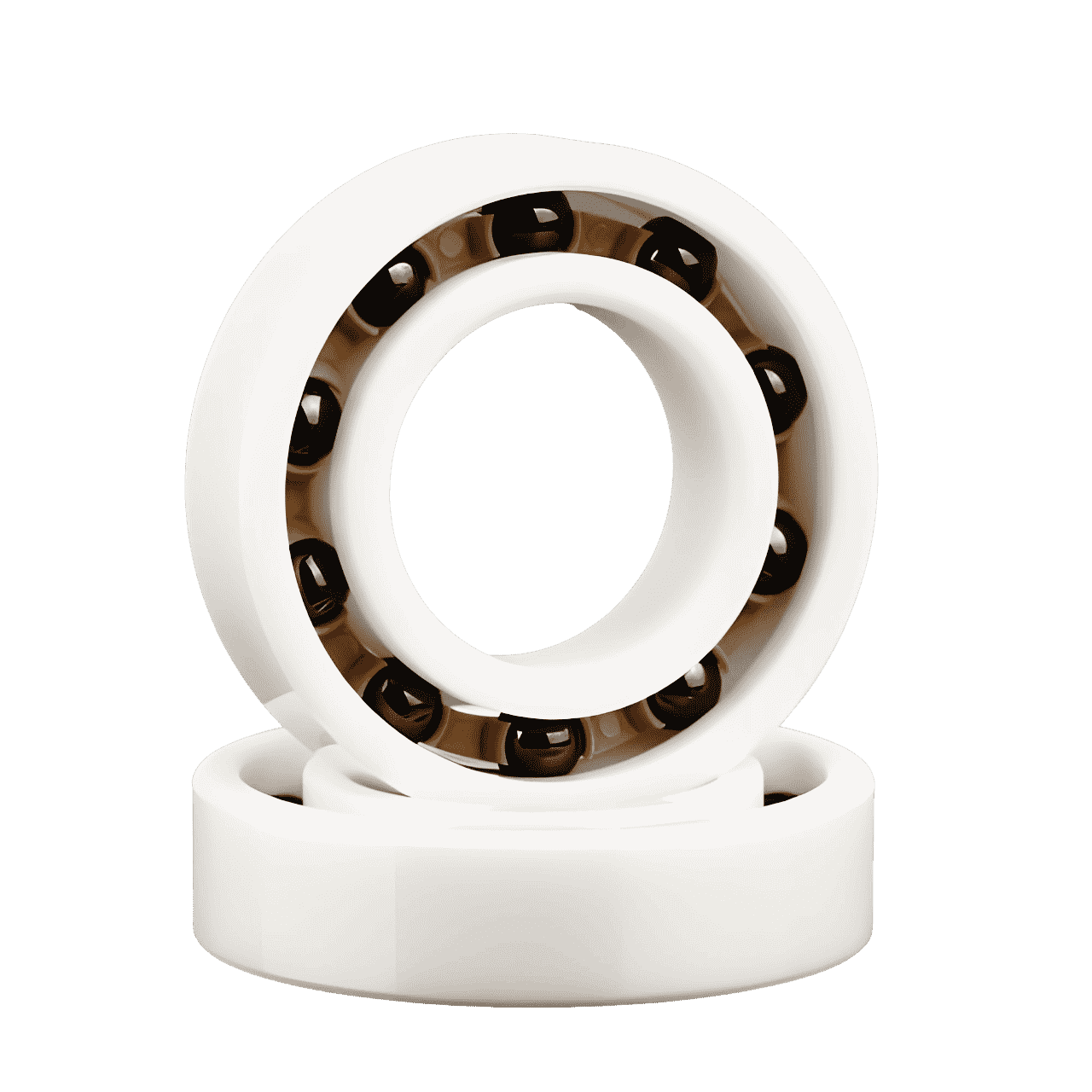
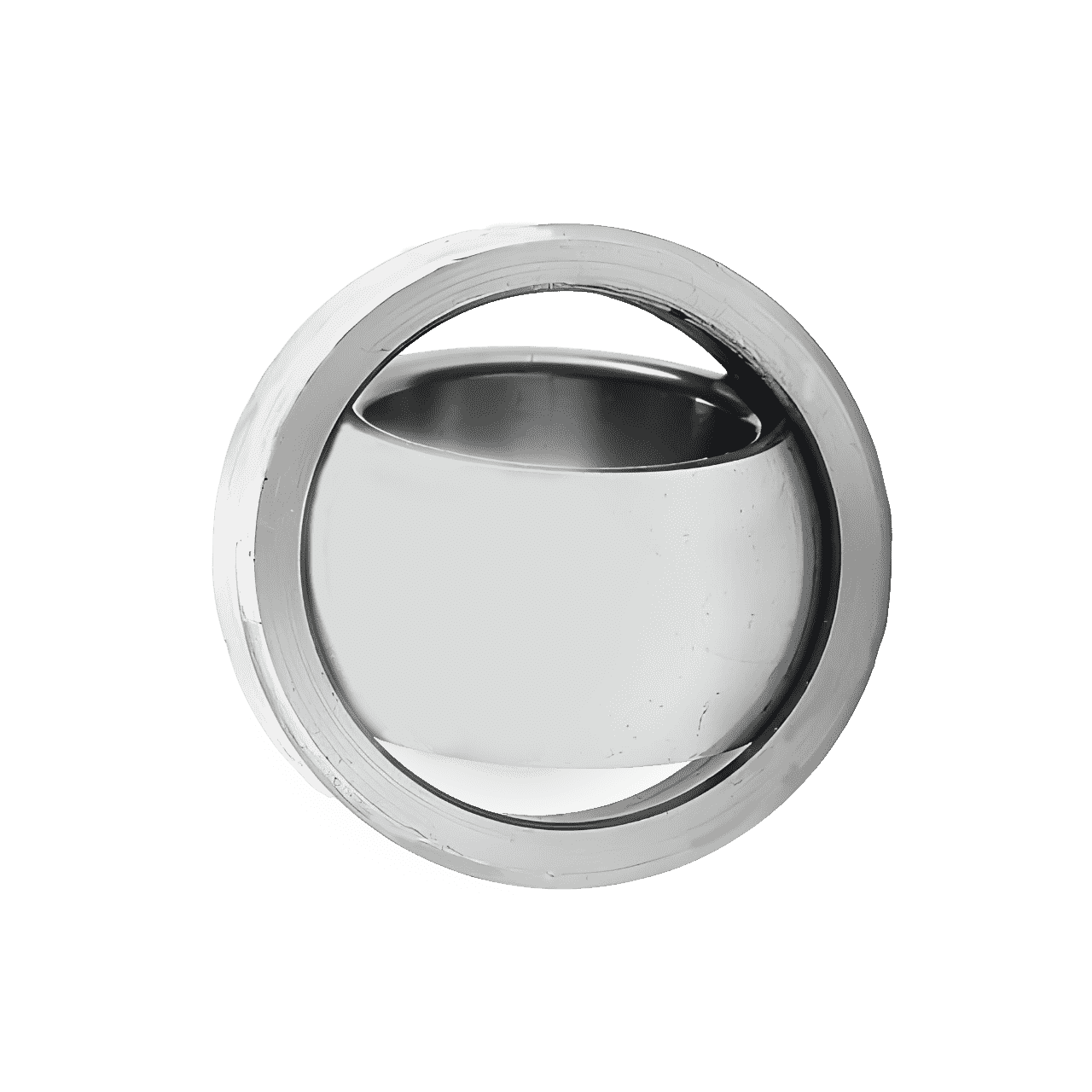
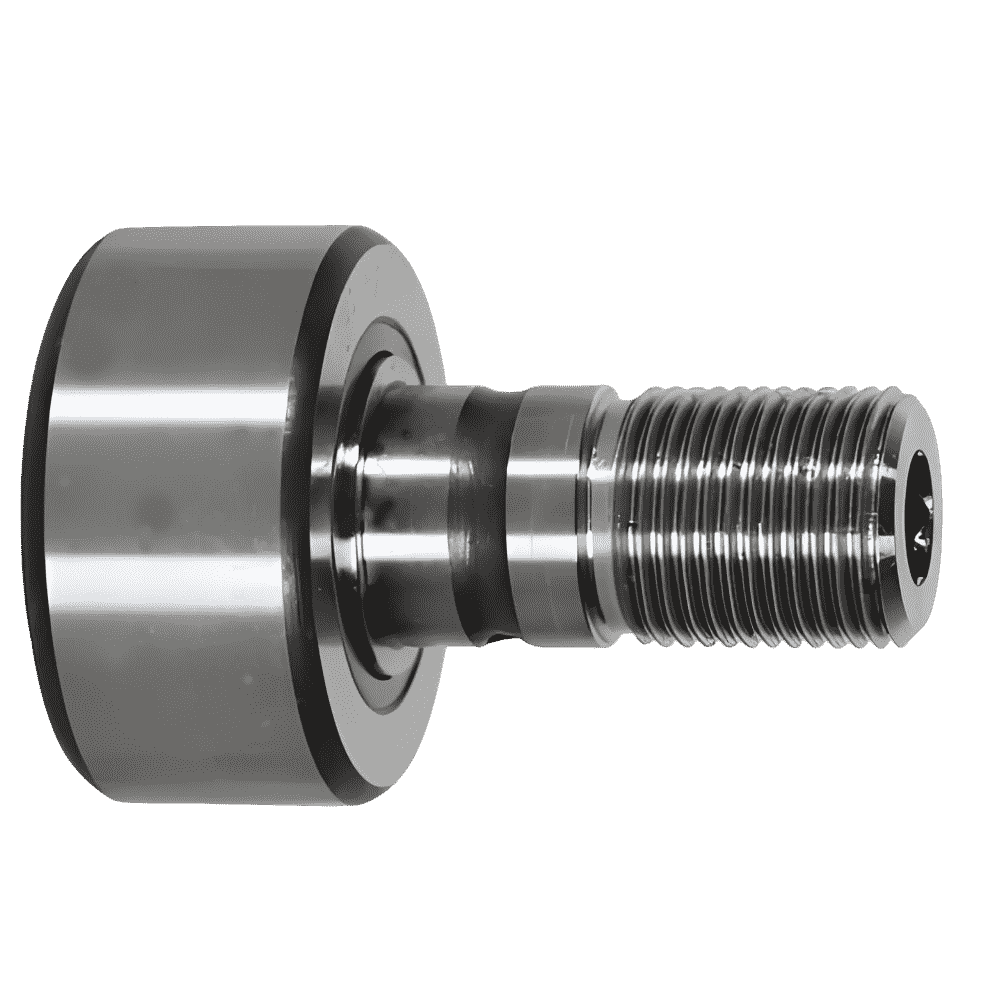
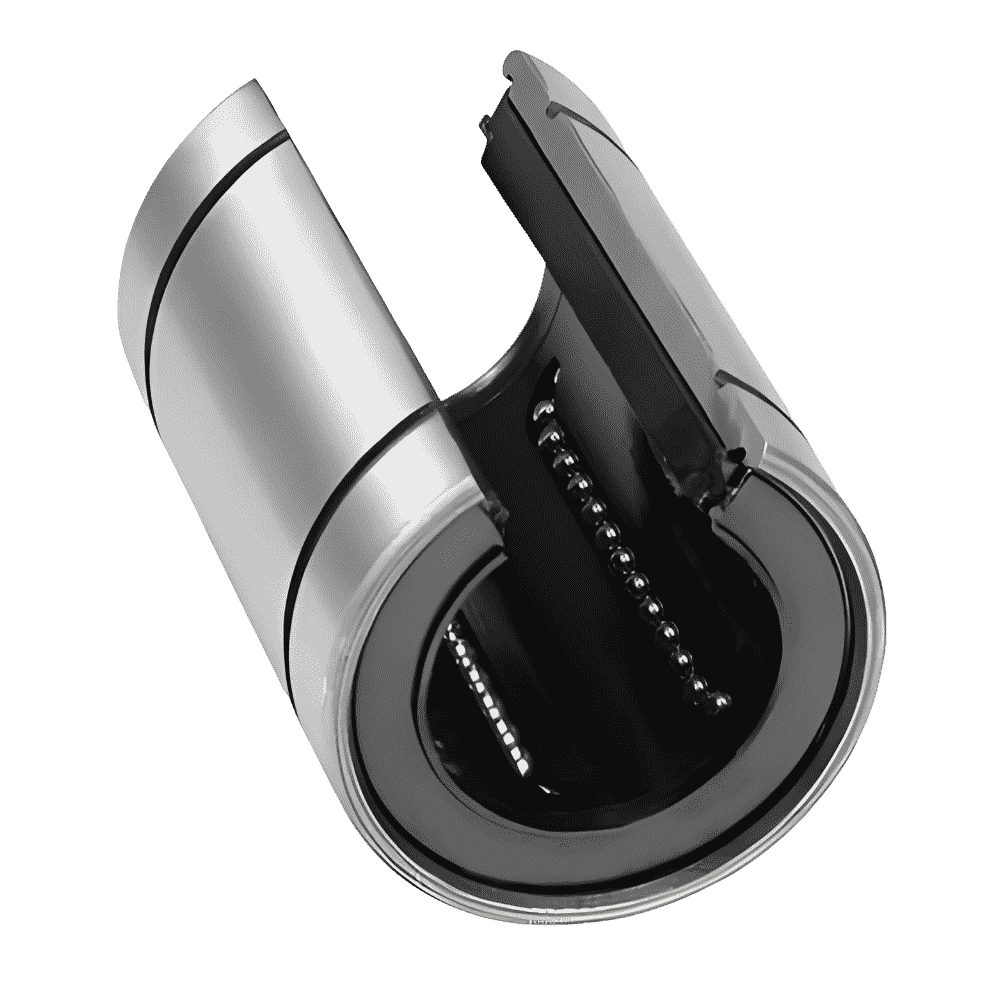
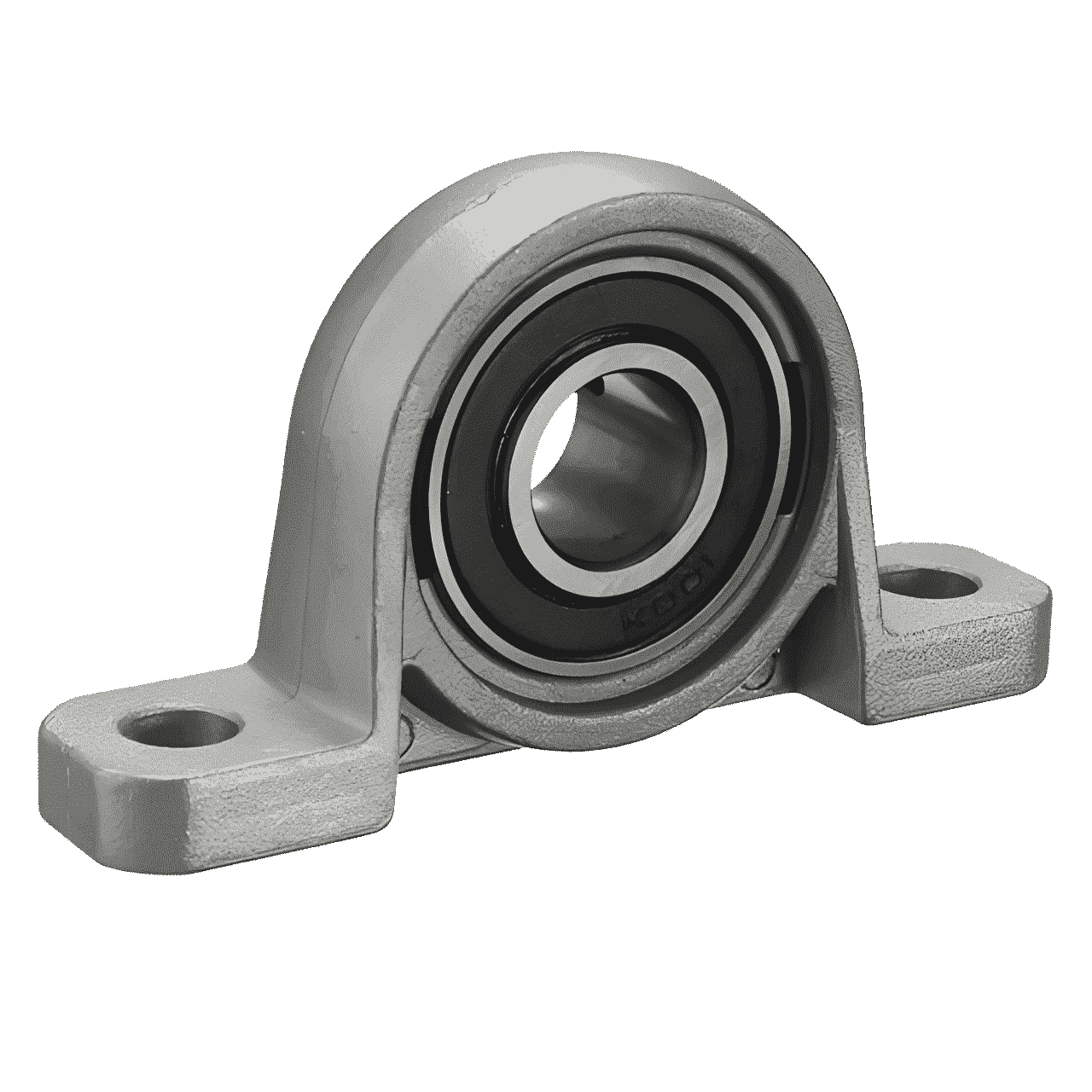
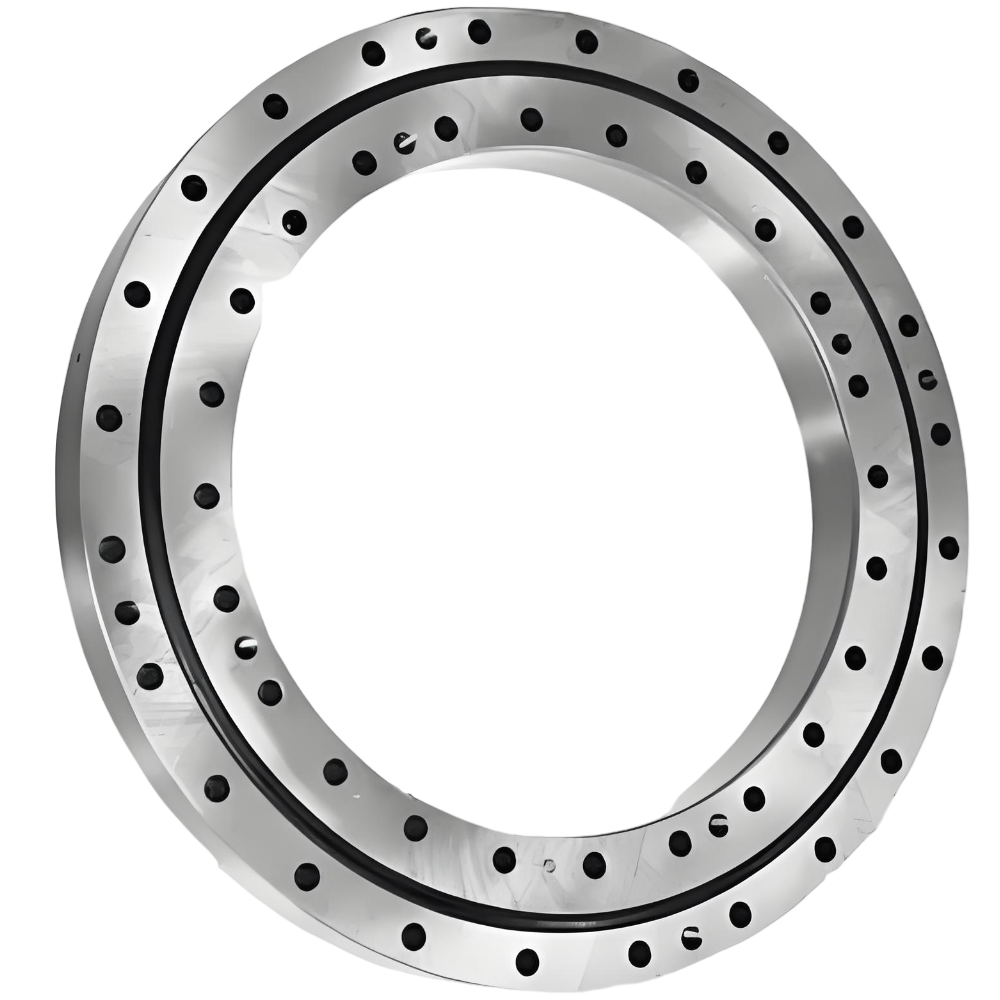
What Are Uncoated Bearings?
Uncoated bearings are made from metals like steel or bronze without any extra coating. They are preferred in situations where long-lasting performance and durability are needed.
Advantages of Uncoated Bearings
- Cost-Effective: They are generally cheaper to produce and buy because they don’t have extra coatings.
- Availability and ease of manufacturing: They are straightforward and easy to manufacture. This makes them widely available.
- Versatility: They can be used in many things, from home appliances to big industrial machines.
Disadvantages of Uncoated Bearings
- Higher wear and tear: They can wear out faster compared to coated bearings, especially in harsh conditions.
- Susceptibility to corrosion: They might not work well in places with chemicals or corrosive substances.
- Limited lifespan in harsh environments: They might not last as long in high-stress or high-load applications.
- Higher Maintenance: They require more frequent maintenance and bearing lubrication.
- Heat Sensitivity: Less resistant to high temperatures, which can lead to deformation or failure.
- Electrical Conductivity: These bearings can be affected by electrical currents. This can lead to potential damage.
What Are Coated Bearings?
Coated bearings have a layer of material like PTFE, ceramics, or polymers added to them. These bearings are used in places with extreme loads and short engine rebuild times.
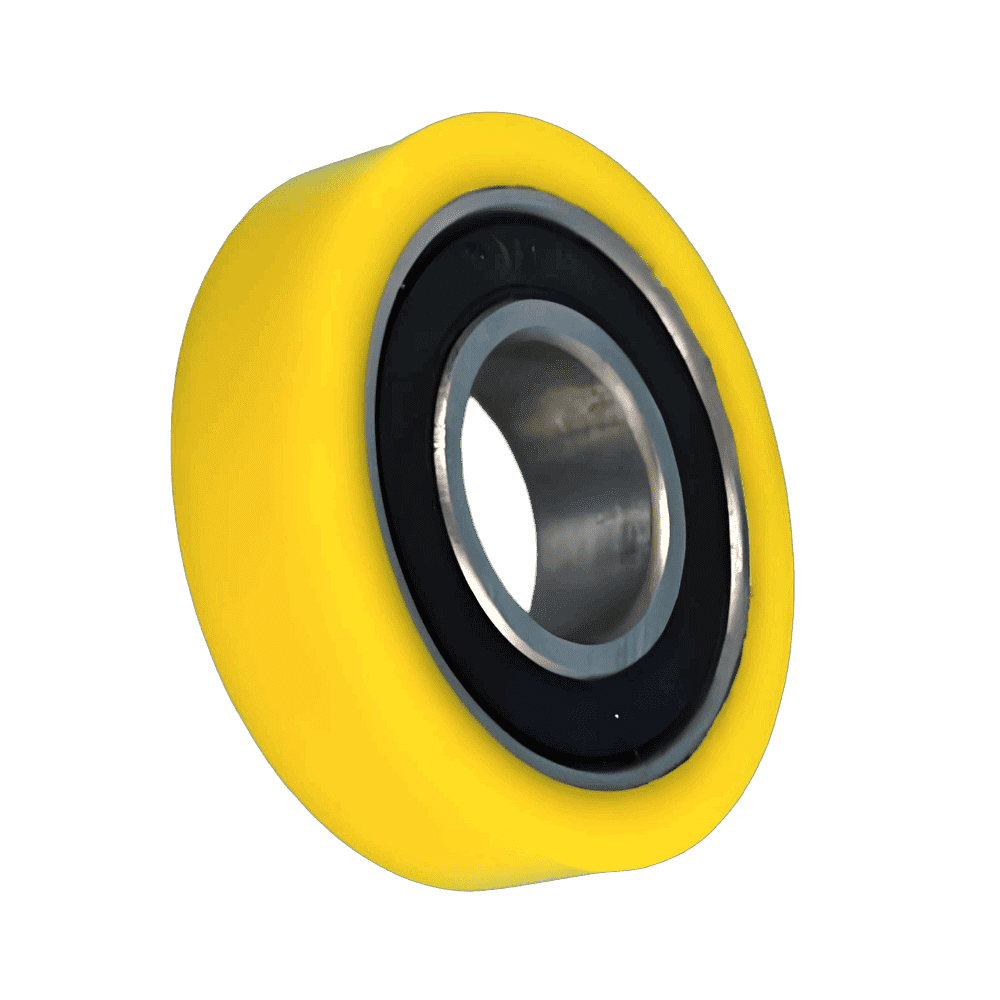
Advantages of Coated Bearings
- Enhanced Durability and Longevity: Coated bearings last longer by protecting the surface from wear and tear.
- Improved Corrosion and Wear Resistance: They can better withstand harsh environments with chemicals or corrosive substances.
- Rust Prevention: The coating prevents rust, maintaining the bearing's integrity and performance over time.
- Better Performance in Extreme Conditions: Coated bearings handle heavier loads and extreme conditions without degrading quickly.
- High Load Capacity: These bearings have high load capacity because they can handle higher loads and stresses.
- Smooth Operation: The coating reduces friction, leading to smoother and more efficient operation.
- Vibration Dampening: Coated bearings reduce vibrations. This leads to quieter operation, which is important where noise reduction is crucial.
- Temperature Resistance: They resist high temperatures, preventing deformation and failure.
- Electrical Insulation: Some coated bearings provide electrical insulation, protecting against electrical damage.
- Contaminant Protection: They have better protection against dirt and debris. This ensures smoother operation.
- Less Frequent Maintenance: Coated bearings require less maintenance, reducing downtime and operational costs.
- Lower Energy Consumption: Reduced friction means less energy is needed to move the bearings. This makes machinery more energy-efficient and reduces costs.
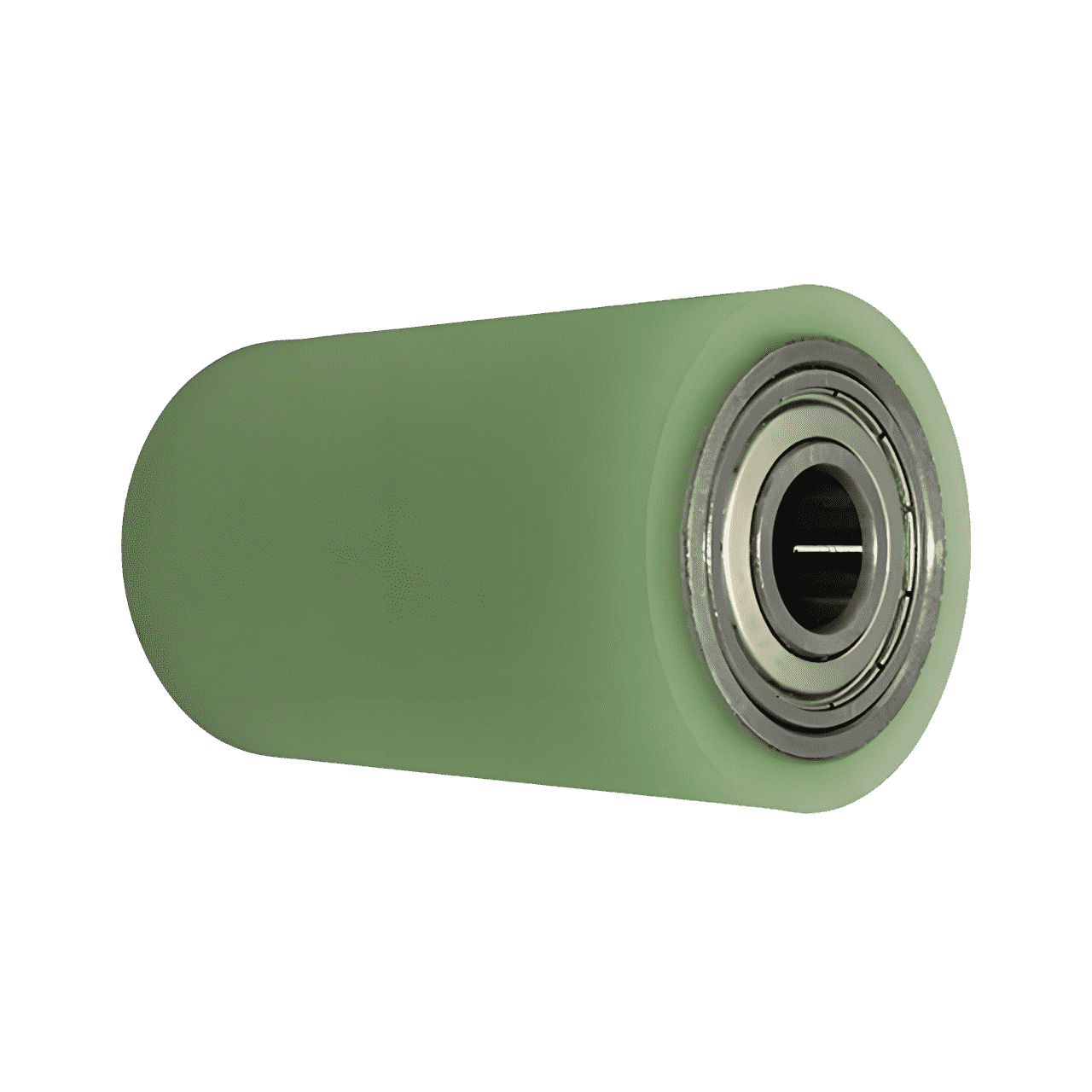
Disadvantages of Coated Bearings
- Higher initial cost: Coated bearings cost more because of the extra materials and work needed to apply the coating.
- Potential for coating degradation over time: Coated bearings can be damaged during installation or operation, which can reduce effectiveness.
Uncoated VS Coated Bearings
About the two types of bearings, I will expand on performance comparison. Coated bearings outperform uncoated ones in several key areas:
- Durability: They last longer because they resist wear and corrosion better.
- Load Capacity: They handle heavy loads more effectively due to lower friction and better load distribution.
- Resistance to Harsh Conditions: They perform well in tough environments with chemicals, moisture, and extreme temperatures.
Cost Comparison
Coated bearings cost more upfront but save money in the long run because they need less maintenance and last longer. They also keep machines running smoothly. Uncoated bearings are cheaper at first but can end up costing more over time due to frequent maintenance and replacements.
Maintenance Requirements
Uncoated bearings need regular lubrication to keep them running smoothly and prevent wear. They also need frequent checks to make sure they are in good shape. Because they wear out faster, they often need to be replaced more frequently. All this maintenance can lead to machine downtime, which can reduce productivity.
Coated bearings need less lubrication and fewer inspections because the coating makes them more durable. They last longer and reduce wear and tear. This means machines can run longer with less maintenance and fewer interruptions.
Application Suitability
Uncoated Bearings:
Uncoated bearings are often used in household items like washing machines and fans. They are also used in electric motors and general industrial machines that work in mild conditions.
- Environment: The bearings are best for clean, dry environments where there's little exposure to chemicals or moisture.
- Load: They are suitable for light to moderate loads.
- Expected Lifespan: They are ideal for applications where high performance and longevity are not critical.
Coated bearings:
Coated bearings last a long time and need little maintenance. They are perfect for tough jobs like chemical processing equipment, where resisting corrosion is important.
- Environment: Perfect for harsh environments with exposure to chemicals, moisture, or extreme temperatures.
- Load: They are ideal for high-load and high-stress applications.
- Expected Lifespan: The bearings are suitable for applications requiring long-lasting performance and minimal maintenance.
Here's a table so you can get a clearer picture of them:
|
Criteria |
Coated Bearings |
Uncoated Bearings |
|
Friction Reduction |
Superior friction reduction due to specialized coatings. |
Standard friction levels, may require lubrication. |
|
Wear Resistance |
Enhanced wear resistance, longer lifespan. |
Lower wear resistance, more frequent replacements needed. |
|
Corrosion Resistance |
High corrosion resistance, suitable for harsh environments. |
Lower corrosion resistance, prone to rust and degradation. |
|
Temperature Tolerance |
Better tolerance to extreme temperatures. |
Standard temperature tolerance, may fail in extremes. |
|
Load Capacity |
Higher load capacity due to surface strength. |
Standard load capacity, may deform under high loads. |
|
Lifespan |
Longer lifespan, fewer replacements. |
Shorter lifespan, frequent replacements needed. |
Insights from Industry Experts
- Lubrication and Coating: Coated bearings help keep oil in place and improve lubrication. The smooth coating holds the lubricant better, reducing friction and wear. This means the oil lasts longer and needs to be replaced less often, making the bearings work more efficiently.
- Enhanced Performance: Coatings like Teflon bearings and urethane coated bearings improve engine bearings by reducing friction, increasing durability, enhancing heat resistance, retaining lubrication, and protecting against corrosion. These benefits make the bearings more reliable and long-lasting.
- Extended Bearing Life: Coated bearings last longer than uncoated bearings because the coating reduces friction and wear. This means they run smoother, generate less heat, and don't wear out as quickly. As a result, they need fewer replacements and less maintenance, making them more durable over time.
Specific Applications of Coated Bearings
- Automotive Industry: Coated bearings in automotive systems, like engines, transmissions, and suspensions, reduce friction and wear. This makes parts last longer, work better, and resist corrosion. They help cars run more smoothly and stay reliable for a longer time.
- Industrial Machinery:Coated bearings play a crucial role in enhancing the performance and reliability of heavy machinery and industrial equipment. They provide wear resistance, corrosion protection, friction reduction, electrical insulation, heat resistance, and contamination protection, making them indispensable in various demanding applications across multiple industries.
- Aerospace and Defense:Coated bearings are crucial in aerospace because they withstand extreme heat, heavy loads, and harsh conditions. This ensures aircraft engines and landing gear operate reliably, safely, and with less maintenance, which is vital for air travel efficiency.
Choosing the Right Bearing for Your Needs
Choosing the right bearing involves understanding various factors to ensure optimal performance and longevity. Here’s a simple guide to help you decide:
Factors to Consider
- Load Capacity: You can ensure the bearings can handle the weight and forces they'll encounter.
- Environmental Conditions: You choose coatings that resist heat, moisture, and chemicals in the operating environment.
- Maintenance Capabilities: You ensure for bearings that fit your maintenance schedule and capabilities, aiming for minimal upkeep.
- Cost Implications: You can balance the initial cost with the long-term benefits of durability and reduced maintenance.
Expert Recommendations
We offer custom solutions to fit your specific needs. Our coated bearings can be tailored to ensure optimal performance in your unique conditions.
Conclusion
Knowing the difference between uncoated and coated bearings helps you choose the right one for your needs. Coated bearings offer better durability and performance in harsh conditions, while uncoated bearings are often more cost-effective for simpler uses. For personalized advice, visit LILY Bearing to get professional guidance on bearing selection.
Keep Learning







